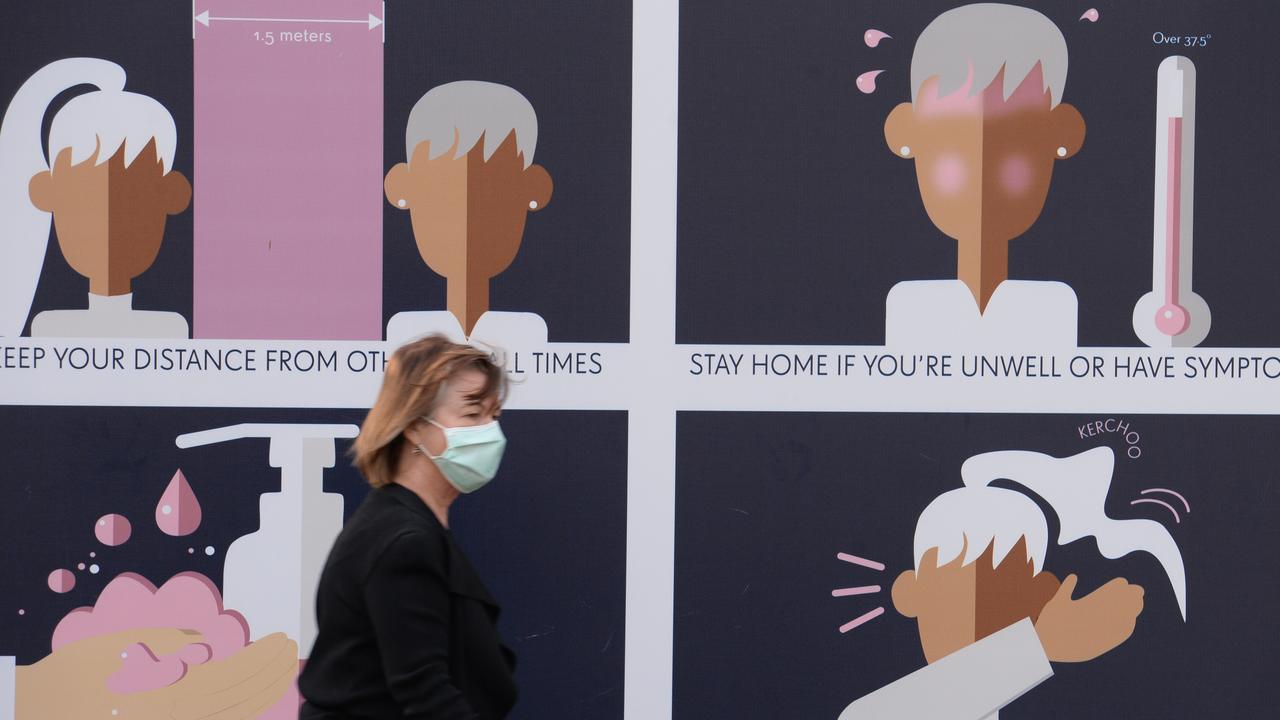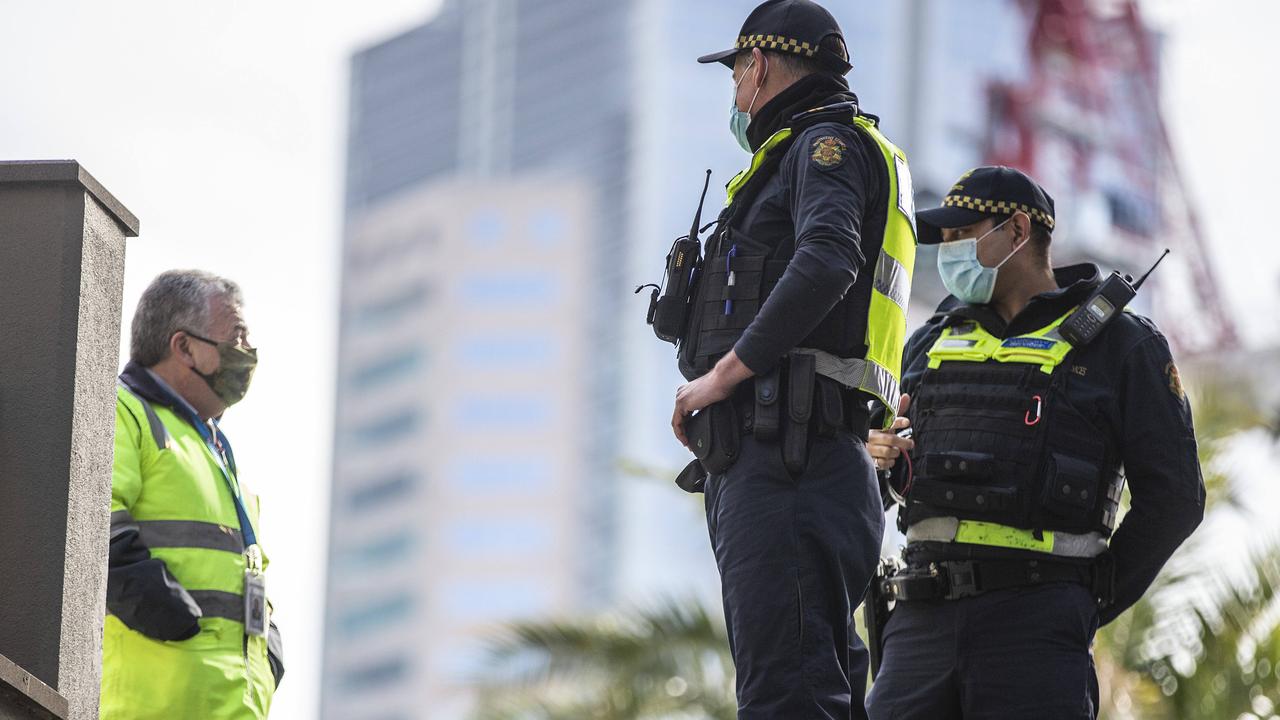‘Perfect storm’ is brewing as Australia counts cost of the coronavirus response
The Morrison Government is “trading off lives” in its approach to spending on the coronavirus, an expert says, as the cost of the response continues to rise.
Authorities say there has been no increase in suicide rates in Australia linked to the coronavirus outbreak as mental health experts criticise the Morrison Government’s response saying it is “trading off lives”.
University of Melbourne Professor Pat McGorry believes a “perfect storm” is brewing as the measures to combat the outbreak begin to impact people’s mental health, especially those of young people.
In a conversation with journalist Ginger Gorman on the Seriously Social podcast, Prof McGorry said data collected after the Global Financial Crisis in 2007 showed the devastating impacts of an economic recession.
“In Spain, with austerity policies, youth unemployment reached about 50 per cent in Spain, which pretty much wipes out a whole generation, a good 10 years of people’s lives at their most crucial, formative period for their trajectory in life,” he said.
“So, that’s what this generation of young people is facing if the recession is severe and prolonged enough.”
RELATED: Follow the latest coronavirus updates
RELATED: Unemployment rate to hit 9 per cent by Christmas
The executive director of the Orygen Centre for Youth Mental Health said he didn’t believe the economic impact in Australia would be as bad as what happened in Spain during the GFC.
But he said he didn’t think Federal Government funding was enough to address the “perfect storm” approaching.
“What we’re doing here is trading off lives lost from viral infections with lives lost from mental illness and suicide,” Prof McGorry said.
“As a result of the Government’s response, we’ve only lost a bit over 100 lives from the COVID pandemic,” he said.
“In the same period of time since COVID began four months ago, we’ve lost around 1000 people from suicide. Now, that happens every year. It might be higher this year. We just don’t know because we don’t measure it in real time.”
He said previous inquiries from the Productivity Commission and the Royal Commission in Victoria had already shown the country’s approach to mental illness was inadequate.
The coronavirus pandemic is expected to add an extra 20 per cent or 30 per cent in need for care on top of that.
Modelling from Professor Ian Hickie, co-director of the Brain and Mind Centre at The University of Sydney, found suicide deaths could rise by 25 per cent annually and this may be a conservative estimate.
But a spokesman for Health Minister Greg Hunt told news.com.au that the latest evidence to the end of June in Australia and internationally had not indicated any increase in suicide rates associated with COVID-19 or the measures taken to reduce its spread.
He said the Government had also rapidly scaled up medical advice, care and treatment, including looking after Australians' mental health and wellbeing.

“Since 30 January, the Government has provided approximately $500 million in extra funding for mental health supports, suicide prevention services, and mental health care via telehealth,” the spokesman said.
“This is in addition to the highest annual mental health funding in history of $5.2 billion in 2019-20 alone.
“The Government is closely monitoring the demand for mental health services (and) will continue to respond appropriately and effectively to safeguard the mental health and wellbeing of all Australians.”
In March, the Federal Government unveiled a $1.1 billion package designed to help Medicare, mental health services and family violence services deal with increased demand due to the COVID-19 outbreak.
But Prof McGorry has described the announcements as “a very modest amount of funding”.
“Tens of millions of dollars for a whole country and spent on awareness campaigns and helplines, that’s really like sandbags in the flood or bandaids on a wound,” he said.
“You’ve got to stem the bleeding in an emergency sense, but it’s not fundamental reform.”
While Prof McGorry said he had received assurances from Treasurer Josh Frydenberg that mental health was a high priority for the government, it still required tangible commitments of funding, timelines and strategies.
“We know that in an economic recession that mental ill health and suicide really rises very sharply. We’ve modelled that, so we’re predicting a perfect storm,” he said.
RELATED: Everyday signs you could have anxiety
RELATED: Australia’s $9 billion mental health spend may not be effective

AUSSIES ‘UNDER A CLOUD’
Prof McGorry said it was possible Australia was going into a period where people would be going backwards in terms of their physical and mental wellbeing.
“The fact that all the normal sources of social enjoyment in life are reduced. All the things that keep us mentally healthy are being affected, really.
“So, it’s very, very challenging, but I think it is a perfect storm and it’s a perfect storm that you’re facing with one arm tied behind your back in some ways.”
He said there were many factors impacting young people in particular, and this was mainly linked to the economic effects of the pandemic.
“The unemployment rate in young people has just gone through the roof. It’s probably two or three times what it is for the general population,” he said.
“Their education’s been massively disrupted. Universities are in deep trouble now. So, the whole future of our tertiary education sector is really under a cloud. Young people are feeling all of that.”
Prof McGorry also pointed to the “mismatch” in funding. He said the government had committed $22 billion a year to help about 400,000 people through the National Disability Insurance Scheme program, while mental health — which was estimated to impact half the population during their lifetimes — got a lot less.
“There are four million people affected by mental ill health in Australia and we spend about $9 billion or $10 billion on it every year. So, it’s a massive mismatch in terms of need and funding,” he said.
He said Australia had already spent a fortune saving lives during the coronavirus pandemic and it had crippled the economy.
“It’s going to cost us an absolute fortune, like tens of billions of dollars, maybe trillions of dollars to save lives from this threat,” he said.
“But with mental illness, we’re losing the same lives.
“Those lives don’t seem to be worth spending money on, whereas the COVID-19 lives are at a premium and cancer lives are a premium.
“So, that is a form of discrimination, actually, which society is inflicting on itself.”
Seriously Social host Ginger Gorman believes experts like Prof McGorry and Prof Hickie, who she interviewed previously, are raising the alarm about mental health.
“Personally, I can see the mental health catastrophe unfolding. Just in my wider social and professional network, five people have died by suicide in the last fortnight. Five. It’s devastating,” she said.
“The stigma against mental health – that it’s not a ‘proper’ illness – is a major factor in why this issue is not taken as seriously by policy makers.
“I am someone who has suffered from both cancer and mental illness at different times of my life. And I can tell you, mental illnesses are not given the same priority or quality of care by the health system.
“Even if the economy opened up again tomorrow, our mental ill health won’t bounce back without a huge investment of support, resources and a shared acknowledgment from Australia’s leaders that this is essential, life saving work.”




